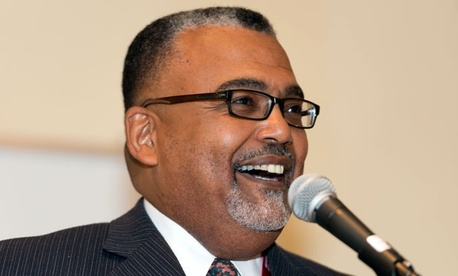
WASHINGTON (PAI) – Federal labor law protects a worker who recruits her colleagues to sign her complaint about sexual harassment on the job, even if they later say they were signing just to ratify her findings and not because of harassment they suffered themselves, the National Labor Relations Board (NLRB) has ruled.
In a 3-1 decision in mid-August involving workers at a Phoenix, Ariz., grocery store, the board said the sexual harassment complaint, even if it just involves the complaining worker, is “protected and concerted activity” the National Labor Relations Act covers.
That’s because sexual harassment can be pervasive in the workplace, even if there’s only one complaint, the board majority added. The board’s ruling this year also reversed a decade-old NLRB ruling – by a GOP-majority board – saying you need more than one worker for “protected and concerted activity” to merit a complaint.
And the new ruling emphasizes that you need only one worker for a complaint of any kind, not just sexual harassment on the job.
The case started on Aug. 24, 2011 at the Fresh and Easy Neighborhood Market in Phoenix, when worker Margaret Elias signed up on a store whiteboard for training in a company “tips” training program on alcohol sales. A male employee altered “tips” to “tits” and added an offensive drawing pointing at her name.
Elias copied down the offending word and drawing and got two other workers to sign at the bottom of her drawing, then complained to management. The two signed, but filed no complaints themselves. The company probed, found the guilty worker, and disciplined him.
In his ruling in the case, the NLRB’s administrative law judge in Phoenix said Elias – and, implicitly, any worker – who brings a complaint that basically is on her own behalf is acting on her own, not in “protected and concerted activity” that labor law covers. The board majority, led by Chairman Mark Gaston Pearce, used the case to say that’s not so.
“It is well established that the activity of a single employee in enlisting the support of his fellow employees for their mutual aid and protection is as much ‘concerted activity’ as is ordinary group activity,” Pearce and the board majority added.
“Elias was engaged in concerted activity,” the board said. Over the decades, the NLRB “defined concerted activity as that which is ‘engaged in with or on the authority of other employees, and not solely by and on behalf of the employee himself,'” the majority said. The case decided by the GOP-named board majority in 2004 overturned those precedents.
“Inasmuch as almost any concerted activity for mutual aid or protection has to start with some kind of communication between individuals, it would come very near to nullifying the rights of organization and collective bargaining guaranteed by” labor law’s key section 7, “if such communications are denied protection,” Pearce and the current majority concluded.
Photo: Mark Gaston Pearce, chair of the NLRB

MOST POPULAR TODAY

High Court essentially bans demonstrations, freedom of assembly in Deep South

Zionist organizations leading campaign to stop ceasefire resolutions in D.C. area

U.S. imperialism’s ‘ironclad’ support for Israel increases fascist danger at home


UN warns that Israel is still blocking humanitarian aid to Gaza






Comments